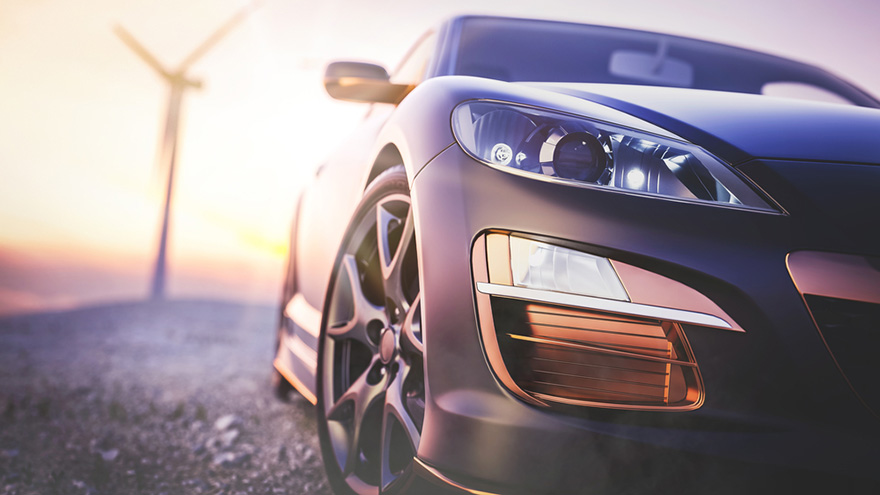As self-driving-car intrigue rises, latest safety features pique more interest

By subscribing, you agree to receive communications from Auto Remarketing and our partners in accordance with our Privacy Policy. We may share your information with select partners and sponsors who may contact you about their products and services. You may unsubscribe at any time.
CAMBRIDGE, Mass. –
While your used inventory probably doesn’t have any self-driving cars — yet — your store already might have models containing the latest safety features a large number of consumers surveyed by CarGurus want.
Along with gauging interest in vehicles having features such as a rear-view camera or blind-spot monitoring, the company’s newest automotive consumer research findings — which benchmarked last year’s inaugural CarGurus Self-Driving Car Sentiment Survey — showed that over the past year there was a perception shift regarding self-driving cars. CarGurus learned consumers expressed greater enthusiasm for self-driving car development overall, and also showed a stronger likelihood of owning a self-driving car in the next 10 years.
Specifically, the survey found:
— Respondents that were excited about the development of self-driving cars increased from 21% in 2018 to 32% in 2019, and the respondents concerned about them decreased from 47% to 37%.
— 28% of respondents specified they could own a self-driving car in the next 10 years, more than double the 13% from last year.
“Consumer sentiment around self-driving cars is changing fast, with enthusiasm rapidly replacing skepticism,” said Madison Gross, director of customer insights at CarGurus. “These benchmarked results demonstrate that today’s consumers are becoming more comfortable with the idea of either owning an autonomous vehicle, or having them on the road, and it will be fascinating to continue to monitor this perception shift.”
Subscribe to Auto Remarketing to stay informed and stay ahead.
By subscribing, you agree to receive communications from Auto Remarketing and our partners in accordance with our Privacy Policy. We may share your information with select partners and sponsors who may contact you about their products and services. You may unsubscribe at any time.
While dealers cannot yet go to the wholesale market and find self-driving vehicles heading down the lanes, managers can offer vehicles that have advanced safety features some owners already have or hope to get in their next vehicle. CarGurus’ survey delved into that topic, too. Here is the rundown:
— Rear-view camera: 34% already own and 43% extremely interested
— Blind-spot monitor: 11% already own and 61% extremely interested
— Surround-view camera: 4% already own and 51% extremely interested
— Automatic emergency braking: 8% and 45% extremely interested
— Adaptive cruise control: 14% already own and 38% extremely interested
— Lane-keep assist: 8% already own and 41% extremely interested
— Driver-attention monitor: 5% already own and 37% extremely interested
— Automatic parking: 2% already own and 37% extremely interested
When looking into which companies consumers trust the most to develop self-driving cars, the survey found that similar to last year Tesla remains atop the most trusted, and increased its lead:
— 29% of respondents say they trust Tesla most to produce a self-driving car, up from 25% in 2018.
— The next-most-trusted companies to produce a self-driving car are Toyota, with 9% of respondents, and Waymo (Google) with 7%.
— 17% of respondents selected “None” for which company they trust, and this is a shift from the 27% in last year’s survey.
Those results are similar to a study from Autolist, which asked consumers which company they would most trust to bring a self-driving car to market.
For the second consecutive year, Tesla led the way in the Autolist study, but the percent of consumers citing the brand as most-trusted slipped from 32% in 2018 to 24% this year.
Second-highest on the Autolist rankings was this group of consumers (at 22%): those who don’t trust any brand to bring an autonomous car to market. But a year ago, it was at 27%. Toyota was third at 18%, up from 15% a year ago, as Autolist noted it being the most often cited “legacy automaker” twice in a row.
General Motors was fourth at 15% and showed the most year-over-year growth (up from 9%). Uber was fifth at 7%, followed by “other,” Volkswagen Group, Lyft and Waymo, respectively, each of which was under 5%.
Going back to the CarGurus study, the company mentioned that its research looked into which vehicle owners would consider buying a self-driving car from their current brand, if it were available. Survey orchestrators found:
— 56% of Honda owners would consider buying a self-driving car from Honda.
— 51% of Toyota owners would consider buying a self-driving car from Toyota.
— 43% of Chevrolet owners would consider buying a self-driving car from Chevrolet.
— 41% of Ford owners would consider buying a self-driving car from Ford.
CarGurus asked respondents whether they were ready to take a ride in self-driving cars provided by services such as Uber and Lyft. The survey showed:
— 35% of people who currently use ride hailing services like Uber and Lyft are likely to take a ride from these services in a self-driving car.
— Of those who currently use ride hailing services, 22% trust Uber the most to develop a self-driving car and 13% trust Lyft.
In March of this year, CarGurus surveyed 1,146 vehicle owners. Among them, 137 were Toyota drivers, 139 were Honda drivers, 147 were Ford drivers, and 116 were Chevrolet drivers.
In April of last year, CarGurus surveyed 1,873 vehicle owners as the inaugural survey of this benchmarking study.


